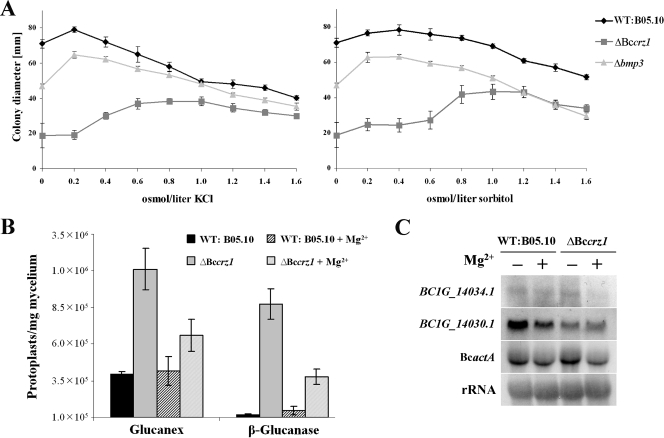FIG. 6.
Impact of BcCRZ1 on cell wall integrity. (A) High-osmolarity conditions caused by salts or sugars improve the growth rates of ΔBccrz1 mutants. The wild type (WT), the ΔBccrz1 mutant, and the Δbmp3 mutant (bmp3 encodes the cell wall integrity MAP kinase) were grown on CM containing different amounts of KCl or sorbitol. Colony diameters were measured after 3 days of incubation. The values are averages from at least six colonies. (B) Hypersensitivity of ΔBccrz1 to treatment with cell wall-degrading enzymes. Conidiospores of the strains were incubated in liquid CM with or without 67 mM MgCl2 for 24 h. The washed mycelia were incubated for 1.5 h in osmotically stabilized solution containing Glucanex or β-glucanase. Protoplasts were counted microscopically, and the numbers of protoplasts per mg dry weight were determined. The data are the means of four replications. The error bars indicate standard deviations. (C) Expression of genes whose products are involved in cell wall biosynthesis. Wild-type B05.10 and ΔBccrz1 mutants were cultivated as described for panel B. The Northern blot was hybridized to radioactively labeled probes of the glucan synthase (BC1G_14034.1)- and 1,3-β-glucanosyltransferase (BC1G_14030.1)-encoding genes. Actin (BcactA) and rRNA were used as loading controls.

